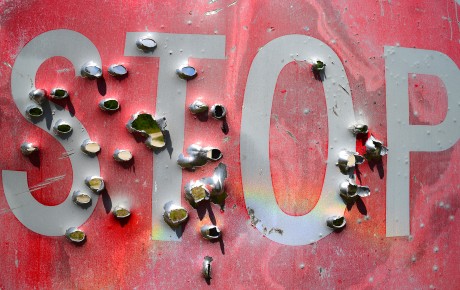
Bribery: the local risk with global consequences
New and tougher anti-bribery laws push bribery to the top of multi-nationals' risk agenda.
Regulators, particularly in the US and UK, are clamping down on bribery, placing intense pressure on multi-nationals to ensure they have appropriate anti-bribery controls in place. Earlier this year, the mining giant Alcoa agreed a £234 million settlement with US authorities relating to allegations of bribing officials in Bahrain. Meanwhile, Rolls Royce is the subject of a high profile investigation by the US Department of Justice (DoJ) over allegations it bribed officials in Indonesia, China and India to win lucrative contracts.
Both the UK Bribery Act and the US's Foreign Corrupt Practices Act were recently reinforced through new guidance issued by the Ministry of Justice and the Securities Exchange Committee respectively. These toughened rules create a problem for companies doing business in less developed economies, where ethical practices are much less clear-cut. "Does a facilitation payment made to expedite the unloading of a freighter at an overseas port," says Marcus Breese, Professions Line Underwriter at Hiscox, "constitute bribery or is it just common business practice in that region?”
Bribery defined
Bribery in one form or another, has probably been going on as long as people have been doing business together. Ancient Rome was rife with bribery when it came to buying votes and currying political favour. And an Assyrian clay tablet from around 2800 B.C. includes the inscription: “There are signs that the world is speedily coming to an end; bribery and corruption are common.”Quite what form bribery and corruption took several thousand years ago is not clear but, to this day, whilst bribery is illegal, authorities in different territories still struggle to come up with a uniform definition. From a UK perspective however, the 2010 Bribery Act defines bribery as "giving or receiving a financial or other advantage in connection with the 'improper performance' of a position of trust, or a function that is expected to be performed impartially or in good faith". It goes on to say that bribery "does not have to involve cash or an actual payment exchanging hands and can take many forms such as a gift, lavish treatment during a business trip or tickets to an event."
International crackdown
Previous efforts to eliminate bribery have not always been effective – at least as far as international business is concerned. In fact, prior to the OECD’s 1997 Convention on Combating Bribery of Foreign Public Officials in International Business Transactions, which committed the world’s leading exporting countries to make it a crime to bribe foreign public officials when engaging with them in cross-border business, some governments saw bribe payments to foreign public officials as “legitimate business expenses for tax purposes”.
Anti-bribery prosecutions under the OECD’s Convention started to pick up at the turn of this century and from 1999 through to 2012, 90 companies and 221 individuals were sanctioned for foreign bribery, with 83 people sentenced to prison. The arrival of tougher rules however looks set to increase the number of prosecutions. “Regulators want to put in place a regime that makes corporates responsible for the actions of their employees," says Breese," while ensuring they adopt a zero tolerance approach to bribery happening within their organisation.”
Regulators want to put in place a regime that makes corporates responsible for the actions of their employees
The UK’s 2010 Bribery Act for example allows any individual or company with links to the UK to be prosecuted for bribery, regardless of where the crime occurred. In particular it has also created a new offence, under which commercial organisations can be prosecuted if they “fail to prevent persons associated with them from bribing another person on their behalf.”
"There is huge political pressure to make successful prosecutions,” says Chris Bailes, Director of Fraud and Financial at Control Risks, and a former Chief Operating Officer at the Serious Fraud Office (SFO). "The Bribery Act took a long time to get on the statute books and many observers want to see the first successful prosecution, whether it's by the SFO or the Crown Prosecution Service. How it will play out in front of a jury, particularly when it comes to assessing interpretations of 'adequate anti-bribery procedures' will be particularly interesting."
This ratcheting up of the regulatory pressure has already led a number of corporations to turn themselves in to the SFO, in the hope of more lenient treatment. In 2011/12, 12 companies notified the SFO that they may be in breach of anti-bribery rules, according to lawyers Pinsent Masons, compared to only two companies in 2008/9.
Where to start
The problem for multi-nationals in assessing the bribery risk within their own organisation can be knowing where to start, particularly when operating in new regions. “Increasing numbers of organisations are now operating on a truly international basis and one of their biggest exposures is in not understanding how commerce is conducted in these new territories,” says Breese.
Facilitation payments, common practice in many developing economies, are under particular scrutiny, adds Bailes. "If you are operating in a less stable environment, business practices are different and your business might find itself having to make payments to ports or other officials so as to secure the release of their cargo. The critical test is whether these payments are 'reasonable, proportionate, and properly considered'.”
There is huge political pressure to make successful prosecutions
Companies must keep a strict paper trail of payments they make Bailes recommends. “Accurate records of any payments made should be kept with a clear explanation as to why it was felt necessary to make them. It should be fully understood that there is never an instance where such payments are legitimate. However it is recognised that companies regularly face situations where there is a need to make low value payments to enable business to continue. Whilst it is highly unlikely that a prosecution will be brought against a particular company in such circumstances, businesses should at all times ensure they fully comply with their published anti-bribery policies. Therefore, for example, setting aside a provision in the company budget for £5million - £10million for facilitation payments may not be consistent with your bribery policy and is not likely to be defensible if reviewed by a regulator."
That'll do nicely
Gifts and hospitality can also be a particularly challenging area. "Again, the test should be: is the hospitality reasonable and proportionate? Flying a company board to Australia's Gold Coast for a week of golf and surfing before they sign off on a procurement deal for your business clearly wouldn't pass that test. On the other hand (in most circumstances), buying a board member a reasonably priced lunch, probably would," says Control Risks' Bailes.
Every business must start by making sure it has a robust anti-bribery policy and procedures in place. As the UK Bribery Act itself states: "an organisation that can prove it has adequate procedures in place to prevent persons associated with it from bribing will have a defence to the section 7 offence."
The bribery risk warrants a top five place among the biggest risks faced by corporates
Internal prudent, overreaction
As with any crisis management situation, pre-planning is also essential. Chris Sherwood, Associate Director Investigative Services Team at Control Risks says: "Business continuity plans should spell out what will happen in the event of an incident of bribery, or investigation by regulatory authorities. Who are the right people, both internally and externally, to notify and what should be your immediate actions? If you have a plan already in place, you can buy time to carefully consider your next steps. Business should adopt an approach of 'internal prudent overreaction' to any suggestion of bribery within their organisation and ask themselves is it an issue? Could it come under the Bribery Act or the FCPA?"
Insurance solutions also offer the opportunity to help mitigate investigative and legal costs should a bribery investigation be necessary.
Complacency the biggest risk
The biggest risk though is boardroom complacency says Bailes: "The bribery risk warrants a top five place among the biggest risks faced by corporates and, in some jurisdictions it's a top-three risk. There is still evidence that company boards are not taking the issue seriously enough. It might cost businesses £100,000-£200,000 to get the right procedures in place, but if it prevents a potentially ruinous £450million fine from the DOJ or SEC and a reputational disaster, it's money well spent."
Bribery Act Response Insurance
To help businesses respond to the challenge, Hiscox has launched a new response, defence and insurance product, the Bribery Act Response Insurance. The cover fills a gap in existing D&O policies and a new offence created by the UK Bribery Act. It provides businesses with specific entity coverage and can be triggered by the actions of associated people.
It includes:
- Insurance protection for the costs of conducting a bribery investigation triggered by a regulator
- Investigations response with access to an integrated, coordinated and experienced legal and response team
- Pre-incident crisis planning.



